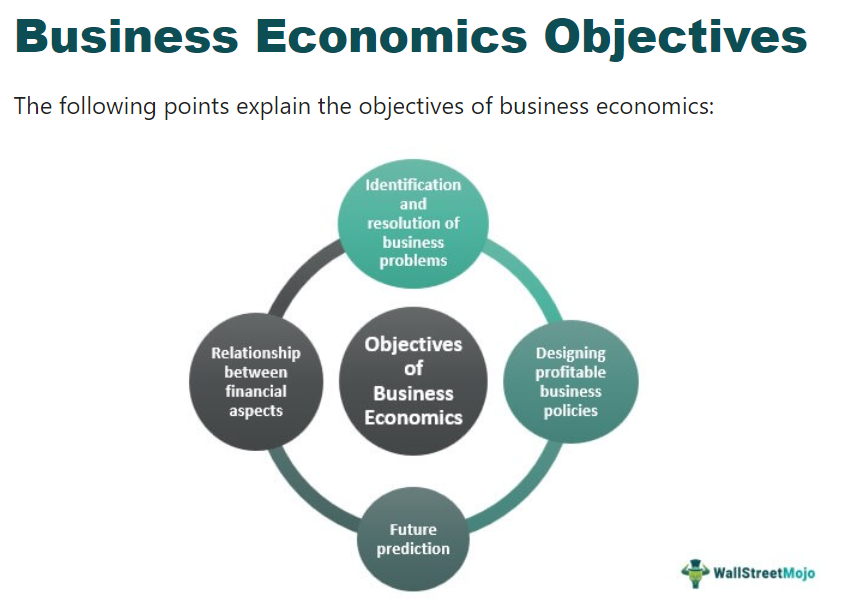The Future of global evolution of Business and Economics is likely to impact global markets
The Future of global evolution of Business and Economics is likely to impact global markets
Blog Article
Service and Economics 101: Important Expertise for Aiming Leaders
In today's rapidly progressing organization landscape, aspiring leaders need to cultivate an extensive understanding of basic tactical frameworks and economic principles. Understanding principles such as supply and need, market structures, and competition is not simply academic; these components are critical fit efficient decision-making and cultivating technology. Additionally, economic proficiency-- especially in cash circulation management-- functions as a keystone for sustainable development. As we explore these important topics, it comes to be noticeable that the intersection of service acumen and financial understanding is important for future leaders to not only survive however thrive in their endeavors. What ramifications does this have for critical leadership?
Understanding Supply and Demand
Supply and need are fundamental ideas that consistently underpin the auto mechanics of any market economic situation. The connection in between these 2 pressures figures out the rate of products and solutions along with their availability in the market. Supply refers to the amount of an item that producers are able and prepared to sell at different price degrees, while demand shows the amount that customers are eager and able to acquire.
When demand boosts without an equivalent rise in supply, prices have a tendency to rise, signaling producers to boost result. On the other hand, if supply outstrips demand, prices may fall, triggering manufacturers to minimize output. This dynamic interaction aids to attain market balance, where the amount supplied matches the quantity required at a particular cost point.

Exploring Market Structures
Market structures define the competitive atmosphere in which services operate, dramatically affecting their rates approaches, result degrees, and overall profitability. Comprehending these frameworks is vital for aiming leaders, as they shape company choices and market characteristics.
There are four key kinds of market structures: best competitors, monopolistic competition, oligopoly, and monopoly. In a completely open market, countless firms offer similar products, resulting in price-taking actions. Monopolistic competition attributes numerous companies marketing differentiated items, enabling some rates power. Oligopolies contain a few dominant firms that can affect market costs, usually leading to calculated communications and competitive behavior. Last but not least, monopolies exist when a single firm regulates the market, leading to the greatest degree of rates power and prospective market inefficiencies.
Each market framework provides one-of-a-kind obstacles and possibilities for services. Leaders should comprehend these nuances to properly place their companies, establish competitive strategies, and reply to market changes. By comprehending the ramifications of different market frameworks, aspiring leaders can make educated decisions that drive their organizations toward lasting success and development in an ever-evolving financial landscape.
Financial Concepts for Leaders
Efficient management in service demands a strong understanding of economic concepts, as they underpin tactical decision-making and source appropriation. Leaders should understand key ideas such as cash circulation monitoring, profitability evaluation, and financial projecting. These elements are important in examining a company's economic health and wellness and leading its future instructions.
Capital administration is specifically important; it makes certain that the company maintains adequate liquidity to satisfy its commitments while pursuing growth chances. Analyzing productivity enables leaders to determine which product and services generate the greatest returns, enabling informed financial investment choices. Additionally, monetary forecasting assists anticipate future revenues and expenditures, assisting in even more exact budgeting and source allowance.
Moreover, recognizing monetary statements-- such as balance sheets, income declarations, and capital statements-- gears up leaders with the insights required to make enlightened selections. This understanding fosters accountability and transparency, improving stakeholder trust.
In today's dynamic service setting, leaders need to be adept at interpreting economic data to react quickly to market changes. Inevitably, a strong grasp of economic concepts equips leaders to drive their companies toward sustainable success while efficiently taking care of dangers and resources.
The Function of Competitors
Understanding the role of competitors is vital for any kind of business aiming to thrive in a click over here saturated market. Competition drives technology and performance, compelling services to improve their services and products constantly.
Moreover, competition can lead to far better pricing techniques. As firms strive for market share, they are incentivized to offer competitive prices, profiting customers while tough services to manage expenses successfully. This vibrant fosters a culture of regular renovation, pressing companies to enhance operations and boost value proposals.
Furthermore, competitors can stimulate market development by encouraging new entrants. New organizations typically introduce fresh ideas and approaches, additionally improving the overall market landscape. Companies must browse around these guys likewise be vigilant; excessive competitors can lead to market saturation, decreasing success for all gamers included.
Eventually, understanding and navigating competitors is critical for leaders. By acknowledging its multifaceted function, striving leaders can make informed choices that position their organizations for lasting success in an ever-evolving marketplace.
Strategic Decision-Making
In the world of service, calculated decision-making is essential to attaining lasting purposes and adjusting to changing conditions. This process involves assessing various options and choosing the most efficient strategy that aligns with the organization's vision and goals. Effective strategic decision-making calls for an extensive understanding of both external and interior atmospheres, including market patterns, affordable dynamics, and organizational capabilities.
Leaders must collect appropriate information, evaluate it seriously, and forecast prospective outcomes. In addition, analyzing risks associated with each alternate allows leaders to develop and prepare for obstacles backup strategies.
Ultimately, effective calculated decision-making equips organizations to browse intricacies, take advantage of chances, and respond proactively to dangers. By growing a culture that values informed decision-making, organizations place themselves to innovate and maintain an one-upmanship in an ever-evolving organization landscape. Aspiring leaders must hone these abilities, as their capacity to make audio tactical choices will substantially affect their companies' success and sustainability.

Conclusion
Finally, a solid grasp of organization and business economics fundamentals is essential for striving leaders. Understanding of supply and demand, market frameworks, and financial principles fosters notified decision-making and reliable source appropriation. Understanding the function of competitors additional improves tactical reasoning, allowing leaders to browse complicated market characteristics. Inevitably, this fundamental knowledge equips future leaders to introduce and straighten organizational strategies with evolving market conditions, leading the way for sustained success and productivity.
Understanding these ideas is vital for aiming company leaders, as they form the foundation for reliable decision-making in prices, resource allotment, and market approach. Understanding supply and demand furnishes leaders to browse the complexities of market variations and consumer behavior.
Syndicates exist when a solitary company regulates the market, resulting in the highest degree of see here now prices power and possible market ineffectiveness.
By grasping the ramifications of numerous market frameworks, aspiring leaders can make enlightened choices that drive their organizations towards lasting success and growth in an ever-evolving economic landscape.
Recognizing the function of competition more improves calculated thinking, allowing leaders to navigate complicated market characteristics.
Report this page